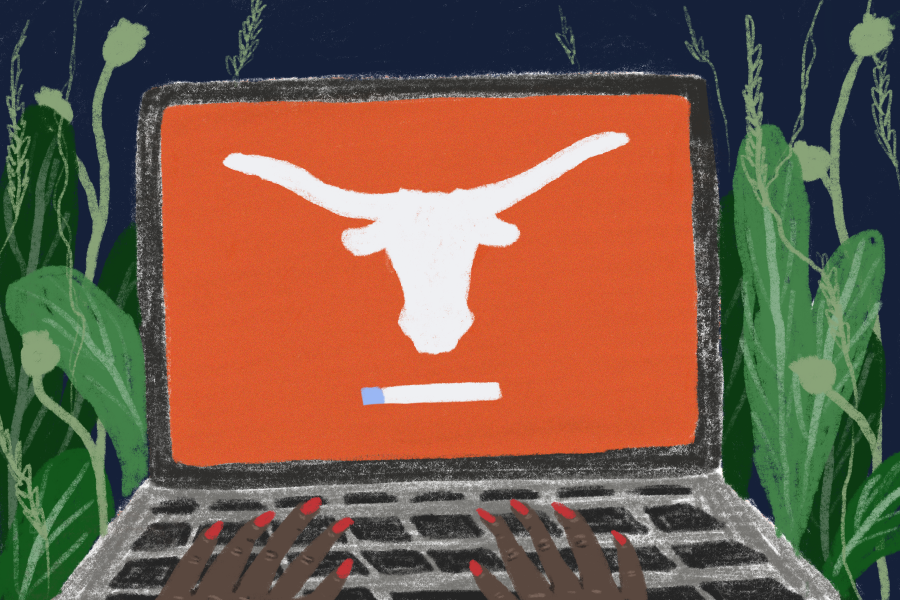With over 60% of UT’s classes being held online this semester, students are struggling to adapt to the new normal. While necessary to mitigate the spread of COVID-19, online school has led to a significant increase in screen time, which is taking a toll on student health and academic success.
Moving forward in the semester, I urge students and professors to recognize the challenges that come with remote learning and do more to help each other cope.
When watching lectures from your bedroom, it’s easier than ever to get distracted. Many students feel as if they’re already falling behind.
“Staring at a screen … ended up discouraging me from studying in depth and going that extra mile,” mechanical engineering freshman Connor Padron said.
In addition to impairing academic performance, the excessive amount of screen time is wreaking havoc on students’ mental health.
“(After a Zoom call), I get really bad headaches, and I just feel like I want to take a nap,” said government junior Mikenzie Miksch. “In person it was hard … but my head didn’t feel as tired.”
Students still have access to resources such as counseling, office hours and tutoring services, but their online format makes them unattractive to technologically exhausted students. Professors must recognize the toll online education is taking on their students and implement more feasible ways to help them.
One solution is for professors to better honor passing periods. Biology freshman Avery Jones has multiple professors that lecture past the end of the class period, and she feels that it disadvantages students who can’t stay that long.
“People will be asking questions in my class, and professors will be answering questions literally 20 minutes over,” Jones said. “I always stay and get that information, but I know a lot of people have to leave.”
For students who have to leave right as class ends, they risk missing out on crucial information and falling behind, which only compounds the inherent stress of online school.
Although students no longer travel across campus between classes, they still need that 10-minute break to look away from the screen, recharge and in some cases, prepare to hop on another call.
As well as honoring passing periods, professors can also give breaks during longer classes or consider assigning less online work to do after class. Some professors are finding even more ways to help.
“I’m trying to … mix things up in my classes,” says Jennifer Wilson, textiles and apparel assistant professor of instruction. “I had a guest speaker Zoom into one class, I try to put people in small groups to discuss, I try to give people a day off Zoom to do things independently so you’re not staring at a computer.”
For students, it is important to be conscious of screen time outside of class and to take a break when necessary. Additionally, turning on your video and participating in discussions will not only make the class feel more real but will make professors more comfortable, as they are also struggling with remote teaching.
“Because you guys are remote … I don’t get engagement from you, and it’s harder to see … when people are checking out,” Wilson said. In contrast to in person classes, Wilson feels that online classes are much more draining. “I would feel … energized … teaching in person, and I don’t feel that now,” Wilson said.
At the end of the day, this is one of the hardest semesters we’ve ever had. While online education is inevitable right now, it is nobody’s preferred learning style. We must recognize the challenges for students and professors alike and actively try to support each other through these hurdles as we move forward in the semester.
Hosek is a psychology freshman from Austin, Texas.





















